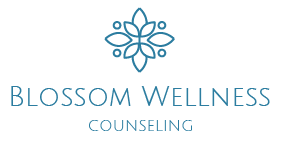Blog
Blog

Why Happiness and Personal Growth are Connected
Let’s make one thing clear: happiness is not personal growth and personal growth is not happiness! These are two separate concepts, but are closely related. Happiness can be the result of personal growth, and sometimes vice versa. Let’s talk more about that.
We all want to be happy! That’s a truth we cannot hide no matter how good we lie to ourselves and others about it. Happiness has fascinated philosophers, psychologists, and individuals alike for centuries. In other words, our quest for happiness is not something new; it’s as old as humanity itself.
The question remains: what brings about lasting happiness?
Lasting Happiness is Beyond Material
In our world today dominated by consumerism and the desire to constantly acquire material possessions, we have come to realize that true happiness extends far beyond the realm of material wealth. Researchers found that the deep intricacies of our human well-being and happiness are not paved with material possessions, but with experiences, personal growth, and meaningful connections.
Personal growth, also known as self-improvement, refers to the intentional process of developing ourselves emotionally, intellectually, and spiritually. This journey involves a conscious effort to identify our weaknesses, confront our limitations, and foster our strengths. Engaging in personal growth activities, such as setting and achieving goals, developing emotional intelligence, nurturing self-awareness, and improving a skill set can lead to a profound sense of fulfillment.
Research consistently shows that individuals who actively engage in personal development report higher levels of life satisfaction and overall happiness. When we invest in ourselves and commit to growing as individuals, we create a positive cycle wherein the pursuit of knowledge and self-improvement becomes intrinsically linked to our happiness.
Continuous Learning Keeps Us Happy
Continuous learning is a major concept in personal growth. This involves an ongoing commitment to acquiring new knowledge, skills, and experiences for as long as we live. We can learn through formal education, reading, attending workshops, or exploring new hobbies. Continuous learning also keeps our minds engaged and it nurtures a sense of accomplishment and progress.
The process of learning provides a natural dopamine release, which is associated with feelings of pleasure and reward. This neurological response enhances our mood. It also contributes to our overall sense of well-being. The act of learning is not restricted to any age; the brain's flexibility allows us to adapt and develop new neural pathways even into our later years, reinforcing the connection between learning and happiness.
So, if learning keeps us happy and helps us stay fulfilled, then let’s not stop doing it!
When we choose to improve ourselves and continuously learn new things, we also challenge our comfort zones. That means there will often be temporary discomforts along the way.
Stepping out of our comfort zone is an integral aspect of personal growth. When we challenge ourselves and conquer new experiences, our brains release neurotransmitters like adrenaline and endorphins. These chemicals not only help us handle stress and anxiety but also induce feelings of euphoria and happiness. The emotional highs achieved through conquering challenges become lasting memories that contribute to an enriched sense of self.
Get the support you need to create calm confidence that lasts
Get the support you need to create calm confidence that lasts
Copyright@2023 Blossom Wellness Spa, Inc.
Copyright@2023 Blossom Wellness Spa, Inc.



